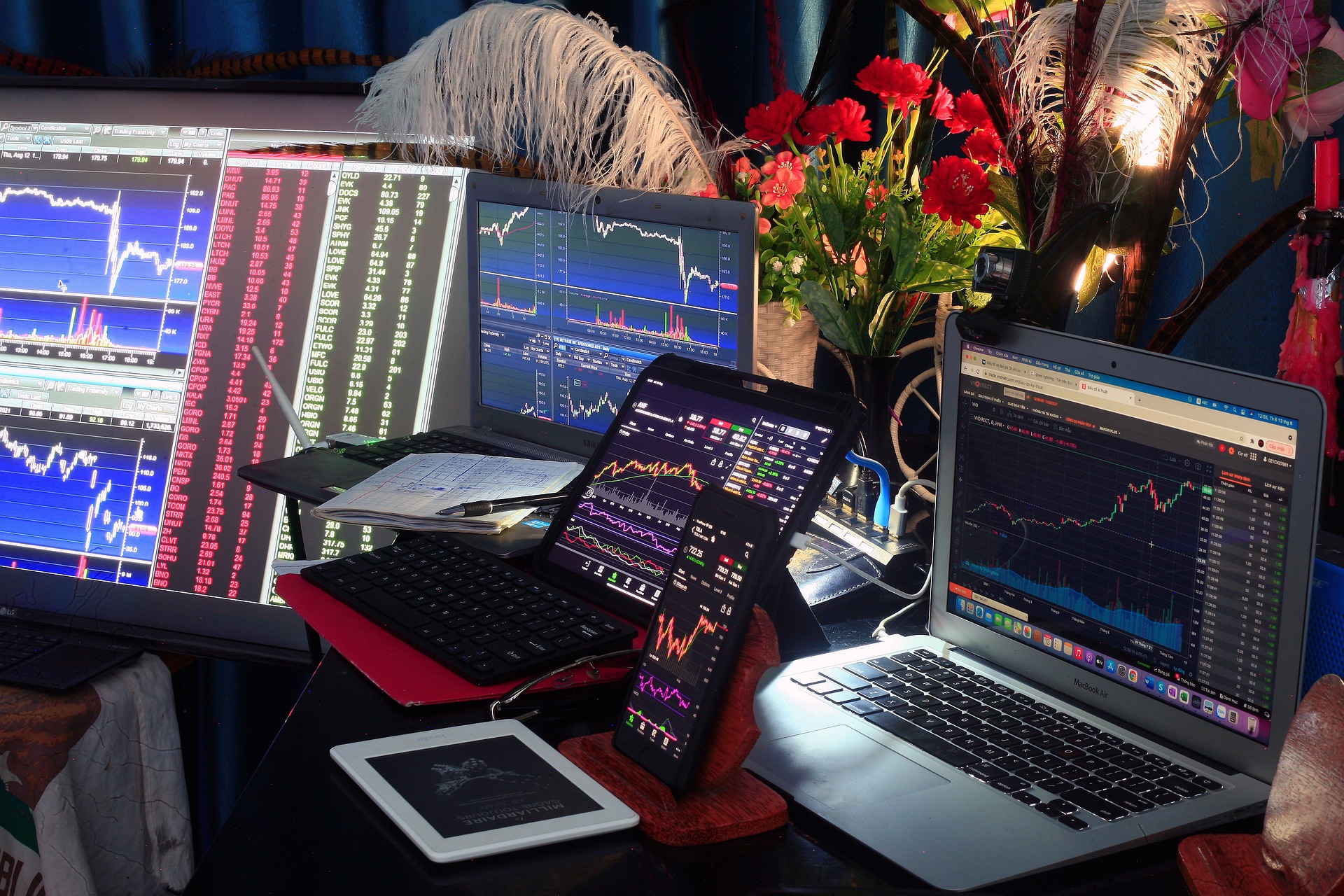The world of finance is intricately woven with the tapestry of global politics. Events unfolding on the international stage, from presidential elections to international conflicts, can have a profound impact on the foreign exchange market, sending currency valuations soaring or plummeting in a matter of moments. Understanding the interplay between political events and Forex trading is crucial for navigating this dynamic landscape. This article delves into the complex relationship between these two seemingly disparate worlds, exploring how major political developments can influence investor sentiment, trigger market volatility, and ultimately, present both potential risks and opportunities for astute Forex traders.
Understanding Forex Trading
Forex, short for foreign exchange, is a global marketplace where currencies are bought and sold. Unlike traditional stock markets, Forex operates 24 hours a day, five days a week, reflecting the constant flow of currencies across the globe. In the dynamic landscape of Forex trading, investors aim to profit from the fluctuations in currency values.
In its essence, Forex involves the exchange of one currency for another at an agreed-upon exchange rate. Investors trade currency pairs, such as the EUR/USD or GBP/JPY, predicting whether one currency will strengthen or weaken against the other. This speculative nature of Forex trading adds an exciting dimension to financial markets.
The heart of Forex lies in understanding currency pairs. Each pair consists of a base currency and a quote currency. The exchange rate tells you how much of the quote currency you need to spend to purchase one unit of the base currency. For example, if the EUR/USD pair is trading at 1.20, it means 1 euro is equivalent to 1.20 US dollars.
The Interconnected World of Politics and Forex
Understanding the world of Forex trading requires recognizing its intricate ties to global political landscapes. Here are key aspects that highlight the interconnectedness of politics and Forex:
- Global Nature of Forex:
- Forex operates on a decentralized global platform.
- Currencies are traded across various financial centers worldwide, such as London, New York, Tokyo, and Sydney.
- The 24/5 market hours ensure continuous trading, reflecting the constant influence of political events from different time zones.
- Influence of Political Events:
- Political decisions impact economic policies, affecting a country’s fiscal and monetary strategies.
- Elections, changes in government, and geopolitical tensions can significantly influence investor sentiment.
- Political stability or instability directly correlates with the perceived strength or weakness of a nation’s currency.
- Market Reaction to Political Developments:
- Swift market responses often follow major political events.
- Central bank announcements, policy changes, or diplomatic shifts can trigger immediate currency movements.
- Traders closely monitor news related to political decisions for potential opportunities and risks.
- Role of Economic Indicators:
- Economic indicators, such as GDP growth, employment rates, and inflation, are influenced by political policies.
- Positive economic data resulting from political decisions can strengthen a currency, while negative indicators may lead to depreciation.
Understanding these interconnected dynamics is essential for Forex traders. Political events are not isolated occurrences but are woven into the very fabric of the global financial landscape, shaping the trends and movements in the Forex market.
Major Political Events and Their Impact on Forex
To comprehend the profound influence of political events on the Forex market, it’s crucial to examine specific occurrences and their corresponding effects. The table below outlines three major political events and their subsequent impact on Forex:
| Political Event | Impact on Forex Market | Currency Affected |
| Elections and Change in Government | Market volatility due to uncertainty. New policies may strengthen or weaken a currency. | Local currency related to the election. |
| Economic Policy Changes | Immediate market reaction based on perceived economic impact. | Currency of the nation implementing policy changes. |
| Geopolitical Tensions and Conflicts | Flight to safe-haven currencies, increased volatility, and potential market disruptions. | Currencies of nations involved in tensions. |
Now, let’s delve into a detailed list explaining the impact of major political events on the Forex market:
- Elections and Change in Government:
- Elections introduce uncertainty, causing increased market volatility.
- Investors may adopt a cautious approach, leading to fluctuations in currency values.
- A change in government often brings new economic policies, influencing the strength or weakness of a nation’s currency.
- Economic Policy Changes:
- Swift market reactions to changes in fiscal and monetary policies.
- Positive policy changes, such as interest rate hikes, can strengthen a currency.
- Negative changes might lead to depreciation as investors seek more stable assets.
- Geopolitical Tensions and Conflicts:
- Heightened uncertainty prompts a flight to safe-haven currencies like the US dollar, Swiss franc, or Japanese yen.
- Increased market volatility due to geopolitical tensions.
- Long-lasting conflicts can have prolonged effects on currency values, impacting nations involved in the dispute.
Understanding the nuances of these political events empowers Forex traders to anticipate market movements and make informed decisions in response to geopolitical developments. Political events are not merely external factors but catalysts that can significantly shape the direction of the Forex market.
Case Studies
Political events have left an indelible mark on Forex markets throughout history. Let’s explore two intriguing case studies that illuminate the impact of politics on currency values:
Brexit and the British Pound
In 2016, the United Kingdom’s decision to exit the European Union (Brexit) sent shockwaves across financial markets. The uncertainty surrounding the process led to significant fluctuations in the British Pound. As negotiations progressed, announcements, delays, and unexpected turns directly influenced currency values. Traders navigated these complexities, with the GBP experiencing both steep declines and rapid recoveries based on political developments.
US Presidential Election and the Dollar’s Rollercoaster
The US presidential election outcomes have consistently triggered notable reactions in the Forex market. The anticipation and aftermath of elections result in increased volatility. For instance, the election of Donald Trump in 2016 initially led to a weakened US dollar, only to see a subsequent rally as markets adapted to the new administration’s policies. These fluctuations showcase how political events, especially elections, can create a turbulent ride for currency values.
These case studies underscore the importance of political awareness in Forex trading. The intricate dance between politics and currency values requires astute observation and adaptability from traders. Each political event brings a unique set of challenges and opportunities, making it imperative for investors to stay informed and agile in navigating the dynamic Forex landscape.
Perplexity in Forex Trading
Understanding the concept of perplexity is crucial for Forex traders aiming to navigate the complexities of the market. Here are key points that shed light on the role of perplexity in Forex trading:
- Definition and Significance:
- Perplexity in Forex refers to the state of uncertainty and unpredictability in the market.
- It is influenced by a myriad of factors, including economic indicators, geopolitical events, and market sentiment.
- Dynamic Nature of Forex:
- Forex is inherently dynamic, with prices influenced by a multitude of variables.
- Perplexity arises from the constant ebb and flow of information, making it challenging for traders to predict market movements accurately.
- Market Sentiment and Perplexity:
- Traders often grapple with interpreting market sentiment, adding to the overall perplexity.
- Sentiment can quickly shift based on news, economic reports, or geopolitical events, creating an environment of uncertainty.
- Impact of Political Events:
- Political decisions, such as elections or policy changes, contribute significantly to perplexity.
- Sudden shifts in political landscapes can lead to abrupt changes in market sentiment, making it challenging for traders to anticipate price movements.
- Risk and Perplexity Management:
- Traders must develop strategies to manage and mitigate the impact of perplexity.
- Diversification, risk management tools, and staying informed about political and economic developments are essential components of effective risk mitigation.
Understanding and embracing the perplexity of the Forex market is a fundamental aspect of becoming a skilled trader. By acknowledging the dynamic and uncertain nature of Forex, traders can develop strategies that not only withstand perplexity but also capitalize on the opportunities it presents.

